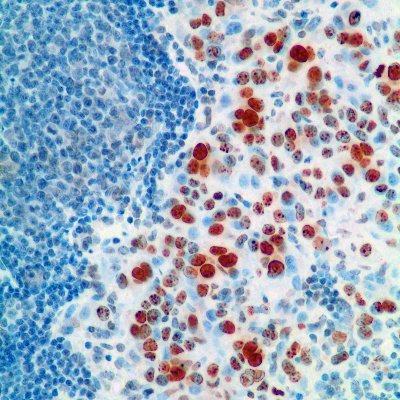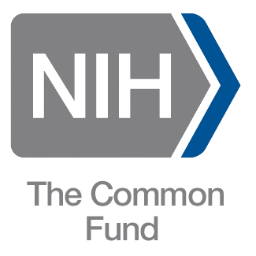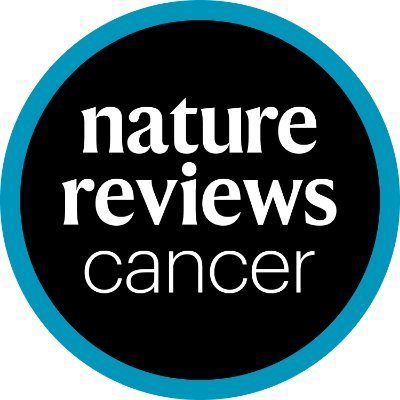
Monte Winslow's Lab
@LabWinslow
Followers
931
Following
246
Media
4
Statuses
112
Studying the Mechanisms of Cancer Progression and Metastasis. Account managed by lab members. Department of Genetics @StanfordMed @StanfordCancer
Stanford, CA
Joined March 2021
.@EmilyAshkin et al @LabWinslow underscore important roles of STAG2 in suppressing lung tumorigenesis & highlight a STAG2-PAXIP1/PAGR1 tumor-suppressive program that may transcend cancer type. https://t.co/blGqFiqDld
@HaiqingXu3 @kinglhung @HowardYChang @Jesse_R_Dixon @ZXuSalk
3
8
25
Our latest preprint is online. Thanks to many in the lab for contributing to building these cell lines over the years including James’ and Alberto’s key contributions.
1
7
26
I'm thrilled to share our new study of the spatial evolution of Kras;p53-driven mouse lung adenocarcinoma! It's been fantastic leading this with @dianyang1117 & @sundakao, and enjoying a long-standing collaboration with @JswLab @YosefLab & @insitubiology.
8
39
134
🚨🚨Now online @NatureCancer, my postdoc work in @SawyersLabMSKCC with @dana_peer 🚨🚨 we establish a powerful organoid transplantation model of prostate cancer neuroendocrine transformation. Open access for all! @HHMINEWS
https://t.co/FJc0WSBvDQ A 🧵... /1
nature.com
Nature Cancer - Sawyers and colleagues describe an in vivo platform used to explore the dynamics and key factors of neuroendocrine lineage transformation. They find that Ascl1 depletion blocks...
30
42
223
Congratulations @dianyang1117 who did his PhD with @SageJulien and I some time ago… @stanfordcbio. Looking forward to some innovative things from him!
Early-stage investigators proposed #innovative high-impact research ideas for the @NIHDirector’s New Innovator Award. See the projects the awardees will pursue: https://t.co/ujuDoPOLUu
#NIHHighRisk
1
0
10
Newest preprint from @EmilyAshkin in our lab! Critical roles of a STAG2 cohesin-PAXIP1/PAGR1 tumor-suppressive axis in lung cancer in vivo. Might transcend cancer type. Amazing collaboration with @ZXuSalk @Jesse_R_Dixon @HaiqingXu3@PetrovADmitri
biorxiv.org
The cohesin complex is a critical regulator of gene expression. STAG2 is the most frequently mutated cohesin subunit across several cancer types and is a key tumor suppressor in lung cancer. Here, we...
0
9
38
Excited to be part of this study by @TonyBoutelle @AttardiLaura on the key effectors of p53 in cancer. We love quantifying gene effects in tumors in vivo. p53->Zmat3 is an important axis during lung tumor initiation @HaiqingXu3 @PetrovADmitri
biorxiv.org
TP53 , the most frequently mutated gene in human cancer, encodes a transcriptional activator that induces myriad downstream target genes. Despite the importance of p53 in tumor suppression, the...
1
8
42
Looking for help with grad school applications? Apply to the Stanford Cancer Biology PhD Preview Program for 1-1 mentoring and student-led workshops!!! More details at https://t.co/7En5nfx1pi Apply: https://t.co/cWw51cVjJa
1
9
17
Amazing collaboration between @EmilyShuldiner and @Alberto_DiazJ using somatic genome editing to model 60 different genotypes of EML4-ALK lung cancer. Genetics say that Variant 1 and Variant 3 should be considered distinct oncogenes @SotilloLab
https://t.co/8HjqwwdcPG
biorxiv.org
Oncogenic fusions of EML4 and ALK occur in ∼5% of lung adenocarcinomas. More than 15 EML4-ALK variants with distinct breakpoints within EML4 have been identified, but the functional differences...
1
11
26
Epigenetic dysregulation is widespread in cancer. Using a new in vivo method, we generated a phenotypic roadmap of 250 epigenetic regulators in lung tumorigenesis in vivo. Most critical epigenetic tumor suppressors including one I hadn’t heard of before.
biorxiv.org
Epigenetic dysregulation is widespread in cancer. However, the specific epigenetic regulators and the processes they control to drive cancer phenotypes are poorly understood. Here, we employed a...
0
36
90
SCI member @LabWinslow explores key variables in designing assays for studying #metastasis, preclinical models, and potential anti-metastatic therapies. https://t.co/5fTyONT9oF
0
4
11
NEW content online! Dissecting metastasis using preclinical models and methods https://t.co/Yq7Z0OOyTh
2
30
76
NEW review out today published with @SpringerNature in @NatureRevCancer by our very own Jess Hebert @AmericanCancer !! https://t.co/aEU8DQtYFQ
#Metastasis #MouseModels #Methods
0
9
19
It is always exciting to be reminded that people in lab are not only great scientists but also talented pumpkin carvers!
1
1
49
Had a fantastic time learning about ongoing research in #pancreaticcancer at the Pancreas Cancer Research Symposium at @Stanford. Was amazing to catch up with Sohinee from @MaraShermanLab and @hanson_kathrynj from the Attardi lab!!
0
2
11
Fantastic meeting at #cshlcancer22 ! Great to spend time with the very first Winslow lab grad student @drmcaswell and the most recent @EmilyAshkin ! Many generations of science!!
1
2
75
Oncogene-negative lung adenocarcinomas afflict as many patients as those driven by either oncogenic KRAS or EGFR. Our paper in @CR_AACR uncovers biochemical drivers and therapeutic liabilities of these cancers. Great collaboration with @PetrovADmitri lab! https://t.co/eK0buJ9jo8
1
14
64
Congratulation to our amazing postdoc Rui Tang (@Ruitang16) for receiving an NCI K99/R00 grant to dissect the reciprocal interactions between cancer cells and endothelial cells during metastasis!
1
1
43
Excited to share the work from Noah “MC” Lee in the lab. Noah found a way to use Lenti-Cre and implement the Tuba-seq platform developed by @LabWinslow with the @PetrovADmitri lab in a mouse model of #SCLC, identifying TSC1 as a tumor suppressor in vivo
biorxiv.org
Small cell lung cancer (SCLC) is a highly lethal form of lung cancer. The high mutation burden in SCLC cells makes it challenging to predict key drivers of SCLC from genome sequencing data, thereby...
3
18
84














